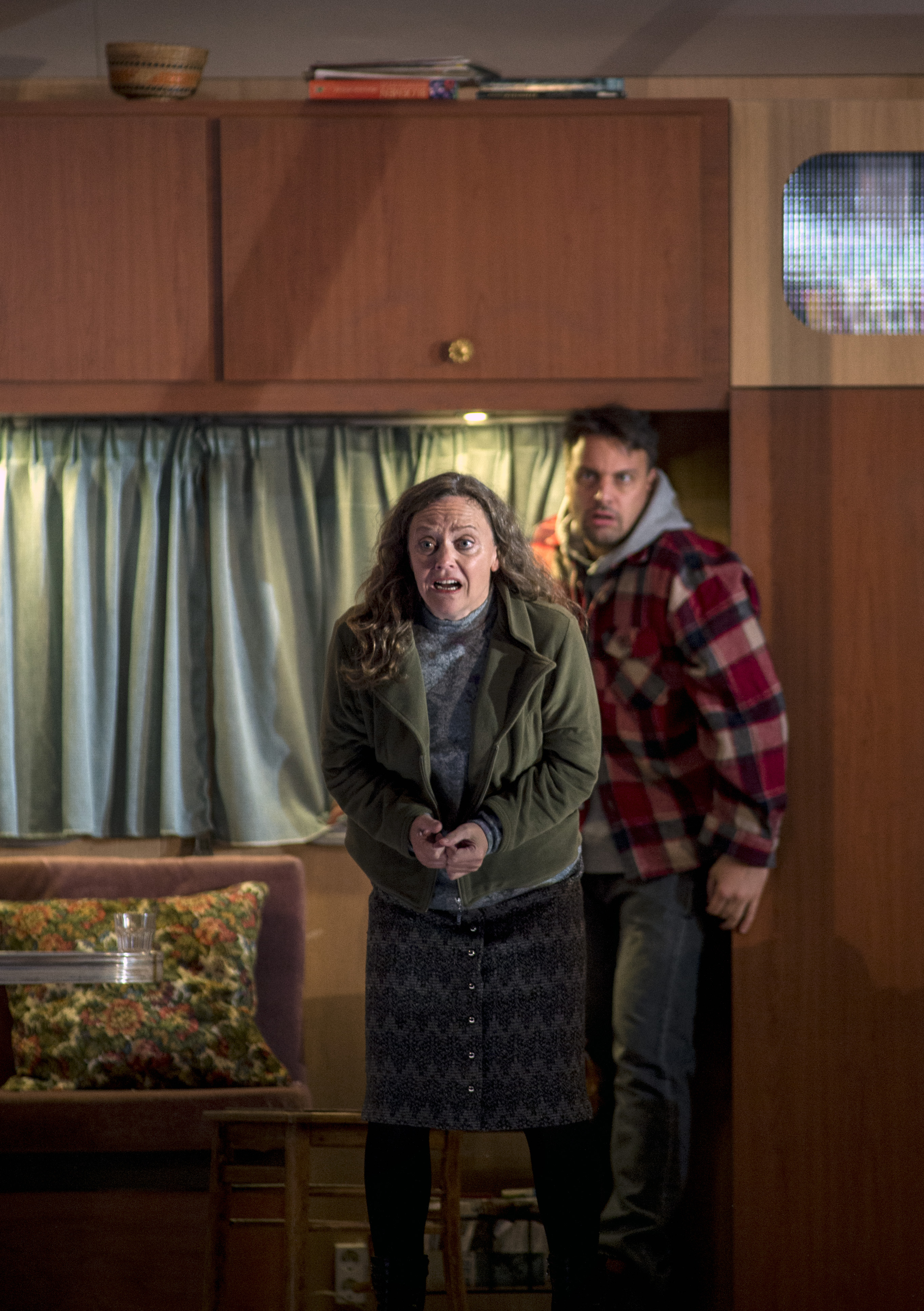
Evelyn Herlitzius: Searching for the truth in art
After an impressive career as one of the world’s leading dramatic sopranos, Evelyn Herlitzius decided a few years ago to change voice types. Since then, she has been singing character roles for dramatic mezzos such as Kostelnička in Jenůfa. Now she returns to Dutch National Opera as Leokadja Begbick in Aufstieg und Fall der Stadt Mahagonny.
Text: Bo van der Meulen
We spoke to Herlitzius just after the first rehearsals, and she is in good spirits. “I can’t say anything other than I feel fantastic. We’ve had the first technical rehearsals, and I consider myself very fortunate to be here. Reuniting with conductor Markus Stenz was particularly special; I’ve previously sung roles such as Brünnhilde (Der Ring des Nibelungen) under this direction. While I haven’t memorised all of my colleagues’ names yet, I have a very good feeling about the entire cast. I have never worked with Ivo van Hove before, and he wasn’t present during the initial rehearsals, but I’m confident we’ll have a good rapport.”
From one role debut to another
“A few years ago, I transitioned between voice types. Just recently, I sang my first Countess in Pique Dame. Now, much like at the start of my career, I’m going from one role debut to another.”
“I prepare very intensely for each new role. However, I don’t start by listening to CDs or watching DVDs. While I respect and am aware of all the great singers, like Martha Mödl, who have interpreted these roles before me, I only listen to their recordings after I feel I’ve mastered the part myself. Otherwise, it can stifle my creativity and increase the risk of unintentionally copying other performers. I want to take on each new role without biases and try to export the unknown, much like singers did before the era of recordings. So far, I’ve only seen a handful of photos from this specific Ivo van Hove production on Dutch National Opera’s website. Everything else will be a fresh discovery made alongside my colleagues.”
“The style of Mahagonny isn’t new to me. I’ve performed various contemporary operas, both with spoken words and a type of Sprechgesang, as found in Wozzeck. I once sang Fidelio that incorporated all – and I mean all – the dialogues from the original version. That was an amazing experience and so I’ve had a fair bit of practice when it comes to transitioning between sung and spoken texts.”
“In Mahagonny, the Brecht approach often conceals character depths, with each character symbolising a principle more than just a persona. Widow Begbick’s first name, Leokadja, intrigues me. Its meanings – ‘luminous, ‘white’, ‘clear’ – suggest she brings light and clarity. It’s an intriguing contrast for someone portrayed as a madame with a stern and pragmatic approach.”

A survivor
“I see Begbick as an everyday, relatable woman. Despite enduring many hardships, she possesses the resilience to start anew each time. She is not only a clever businesswoman but also harbours a deep sense of loneliness, stemming from the loss of her husband nineteen years ago, a void she still feels. Yet she is a survivor, harbouring a determination to make something meaningful of her life. She might appear as a strong and sometimes stern figure, but she genuinely cares for the girls who work for her.”
“Her vulnerability surfaces clearly on two occasions. The first is when she monetarily steps away from the action to share a personal reflection: ‘Auch ich bin einmal an einer Mauer gestanden mit einem Mann, und wir haben Worte getauscht und von der Liebe gesprochen.’ (‘I too once stood by a wall with a man, and we exchanged words and spoke of love.’). In this moment, Kurt Weill entrusts her with lyrical music akin to a Schumann piece, showcasing her softer side.”
“And in the second act, when she more or less instructs the young men to be kind to her girls, she says, ‘Spucke den Kaugummi aus, wasche zuerst deine Hände, lasse ihr Zeit und sprich ein paar Worte mit ihr.’ (‘Spit out your chewing gum, wash your hands first, give her time, and talk to her.’) Women like her had never been portrayed in opera before, even though many such women were left to fend for themselves during the global economic downturn following WWI in the 1920s.”
“Brecht and Weill’s ruthlessness, which left audiences stunned at the premiere, was intentional. They aimed to create a style that was not only novel but also authentic. And that’s what I always strive for in my opera interpretations: truth or authenticity.”
Aufstieg und Fall der Stadt Mahagonny is to be seen at Dutch National Opera & Ballet from 6 to 27 September 2023